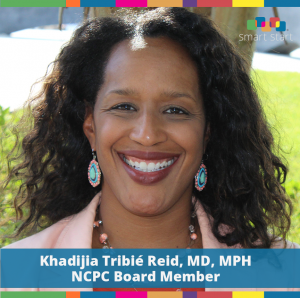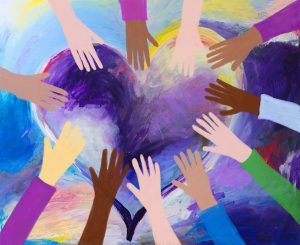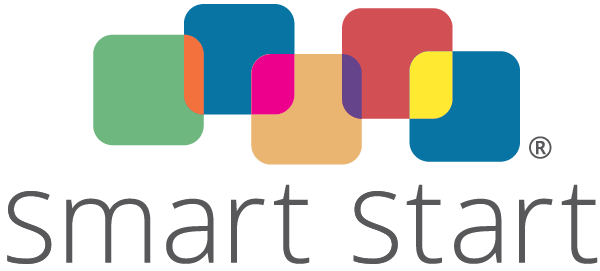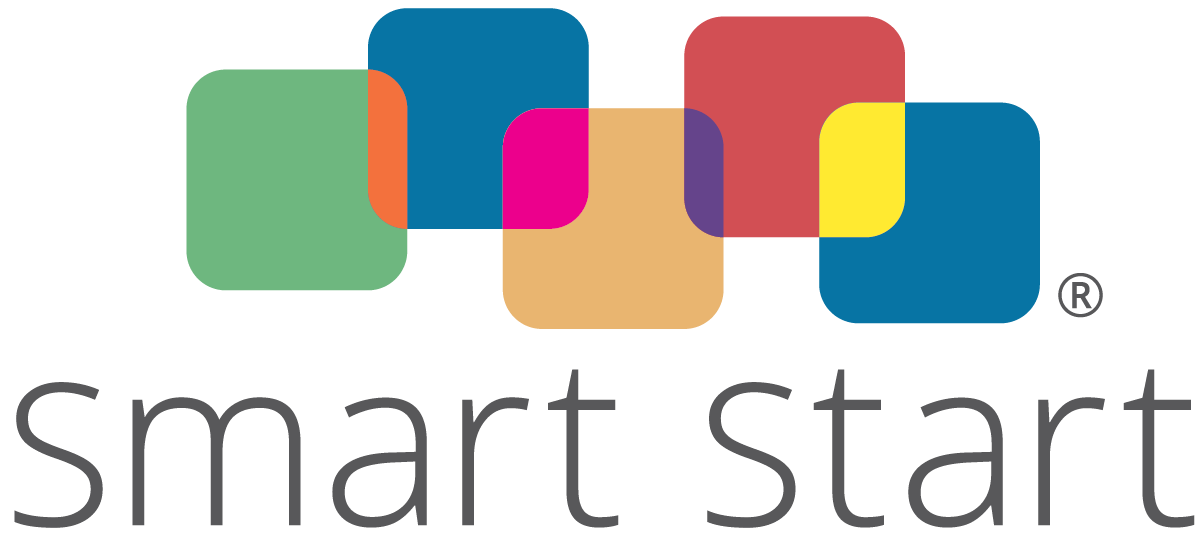Raising Healthy Children is a Community Effort by Khadijia Tribié Reid, MD, MPH
 It was my turn. After two years of providing guidance to thousands of parents as the town pediatrician, I would become a mom for the first time. I knew all the rules. Certainly, raising my own child would be a breeze.
It was my turn. After two years of providing guidance to thousands of parents as the town pediatrician, I would become a mom for the first time. I knew all the rules. Certainly, raising my own child would be a breeze.
My husband and I were in love with her at first sight. I spent hours staring at her, putting her to sleep, then hoping she would arise so I could see her eyes again. After 48 hours, we were snuggling at home in all the spaces carefully prepared for her.
But, within 3 days, a new reality emerged. My body was achy in new places. My emotions were fragile. My muscles tightened before she even latched. There was a strange irony in my obsession over her every breath and the way that infatuation required so much of me. Were we capable of keeping this little human alive? Were we doing the right things to help her thrive?
Once my husband returned to work, there were other preoccupations. The constant feeding, changing and my own fatigue turned basic tasks into great burdens. As I moved from chore to chore, talking and playing with my new daughter became less of a priority.
On the other hand, my mother held animated conversations with her new granddaughter. I rolled my eyes at this seemingly frivolous activity. Pumping, bottle cleaning, and poops galore, but she took the luxury of making newborn conversation?! Little did I know, my mom was doing the very thing that would help my daughter thrive.
Once maternity leave ended, I faced a new challenge – balancing work and parenthood. My daughter attended a wonderful child care center. I was constantly delighted to see what new things those early educators added to her skill set. I watched her vocabulary grow and her social skills evolve. And I was learning, too. I began to understand that behavior I perceived as willful or bad, was age appropriate. These early educators taught me child development more effectively than any textbook.
In my pediatric practice, I continued to care for patients who were the same age as my daughter. Despite the age similarities, many of my patients were not attaining the speech, social or problem solving milestones I witnessed in my child. As I learned about the direct correlation between childhood adversity, brain development and adult health, I understood why developmental delay was so prevalent in my practice. Many of my patients experienced significant adversity.
Adverse Childhood Experiences (ACE’s) include abuse, poverty, neglect, and exposure to community violence, among other things. These ACE’s create toxic stress to developing body systems like the lungs, brain, and heart.
As I consider the families I serve, I get it. Parenting is hard. It often means we forsake our own needs and desires. It may require that we overlook chores to talk and read to someone who can’t yet talk back. Parenting also requires us to instinctively understand what’s developmentally normal despite never being taught child development.

I now recognize my own family’s village helped us survive those early parenting years. Our village included my daughter’s grandparents, godmothers, and childcare teachers. I am even grateful for complete strangers who commented on my child’s new hairstyle or recounted a story about their own child’s grocery store temper tantrums. These are the moments that lift me up, reminding me that I am not alone. I am part of a community of people raising children.
A recent policy statement by the American Academy of Pediatrics entitled, Preventing Childhood Toxic Stress, describes the power of relational health. Focusing on safe, stable nurturing relationships buffers toxic stress and minimizes the harms of childhood adversity. This report elevates the role of community: families, coaches, teachers, and pediatricians. The report also cites the importance of early literacy programs like Reach Out and Read (ROR) and the Dolly Parton Imagination Library (DPIL). In North Carolina, these two early literacy programs are administered by the North Carolina Partnership for Children (NCPC).
As a pediatrician, I directly witness the positive impact of strong villages that include early childhood education. A few days ago, a two-year-old named Maggie came in for a checkup. During her visit, she captivated my entire staff. At only two, she spoke in clear, complete sentences. Her development exceeded all expectations. Nicole, Maggie’s mom, is a young, working mom with several socioeconomic needs. Despite these factors, Maggie was thriving. I wondered about this family’s village. Nicole told me that Maggie’s grandma provided daycare and reading was part of their daily routine. “They read those books she’s been getting in the mail since she was born.” I knew that those were the Dolly Parton Imagination Library books I signed her up to receive at her first newborn visit. It was clear that her family has built a community that fosters her healthy development, a community supported by strong early childhood education infrastructure.
Parenting is an incredible challenge. It is also our greatest opportunity to create healthy, productive adults. But parents cannot do this work in isolation. We need community – community that affirms parenting, nurtures kids, and supports strong early childhood education infrastructure. We need each other.
*Please note that patient and family names have been changed to protect privacy.
Dr. Khadijia Tribié Reid is the Pediatric Medical Director at MedNorth Health Center in Wilmington. She also serves as the Vice Chair of New Hanover Regional Medical Center’s Department of Pediatrics. Dr. Tribié Reid previously served as president of Smart Start of New Hanover County’s Board. She received her Bachelor of Arts degree at Duke University, Medical Degree at Morehouse School of Medicine, completed Pediatric residency at Tulane Medical Center and Master of Public Health at UNC Chapel Hill’s Gillings School of Public Health. Dr. Tribié Reid currently sits on the North Carolina Partnership for Children Board of Directors.








